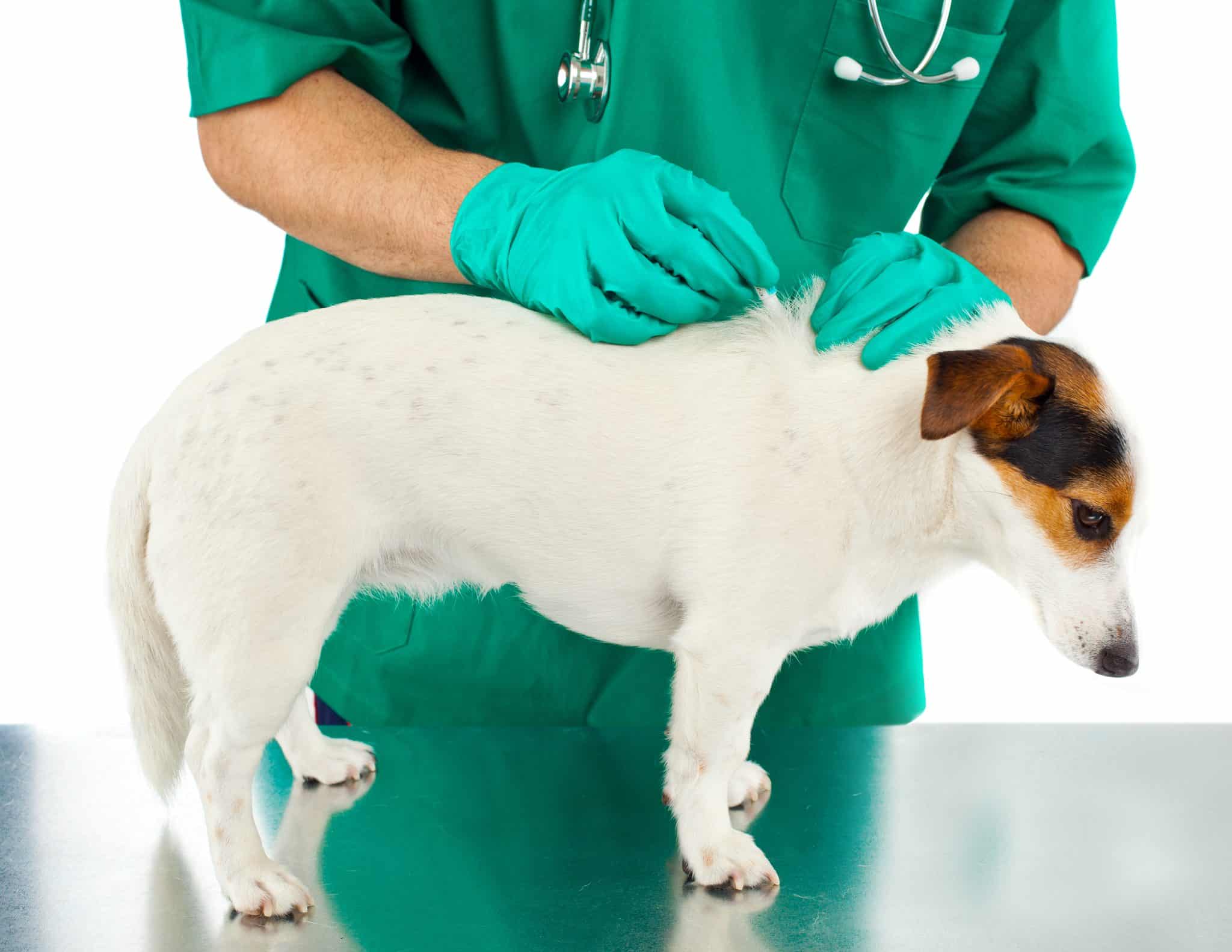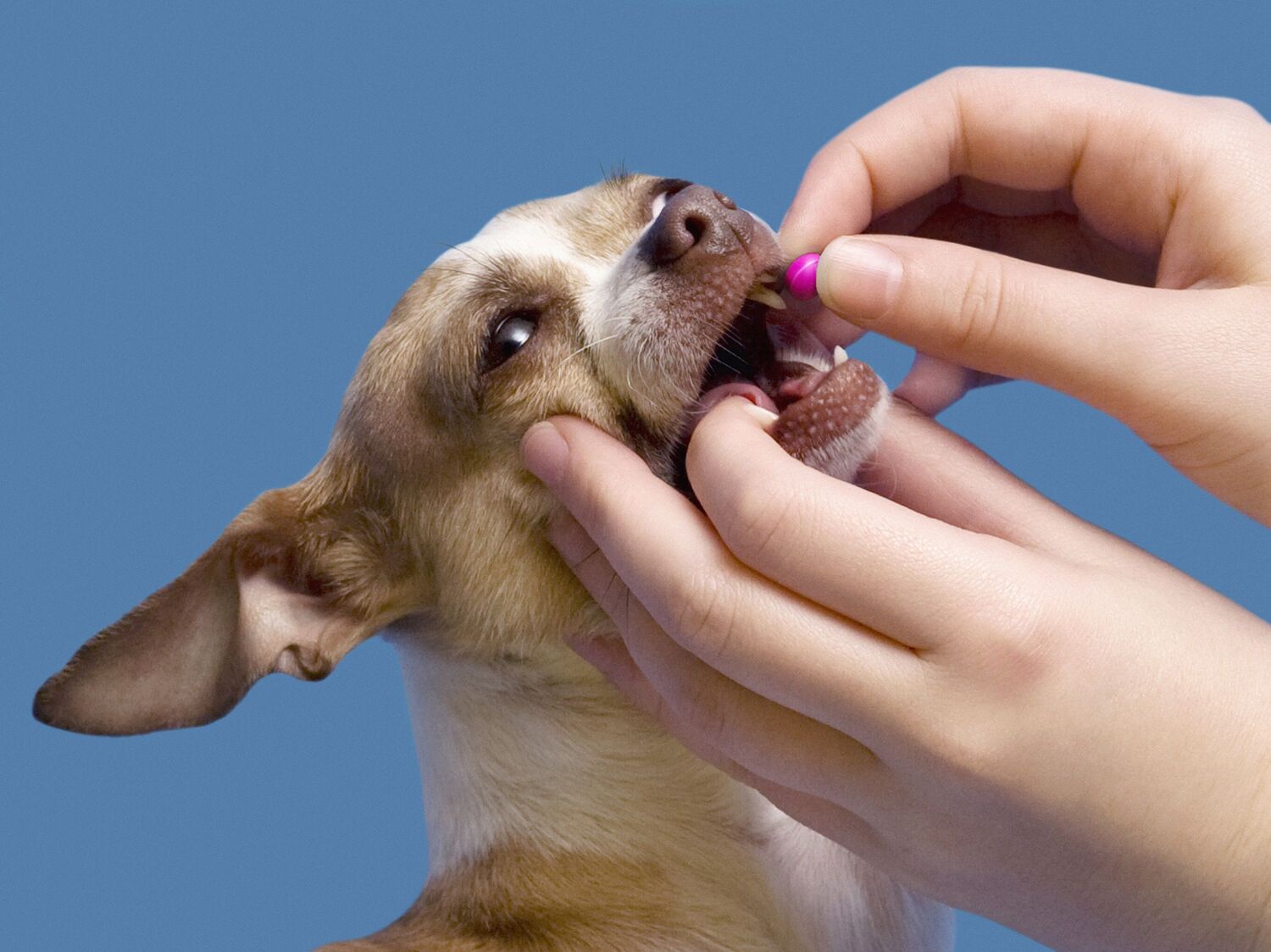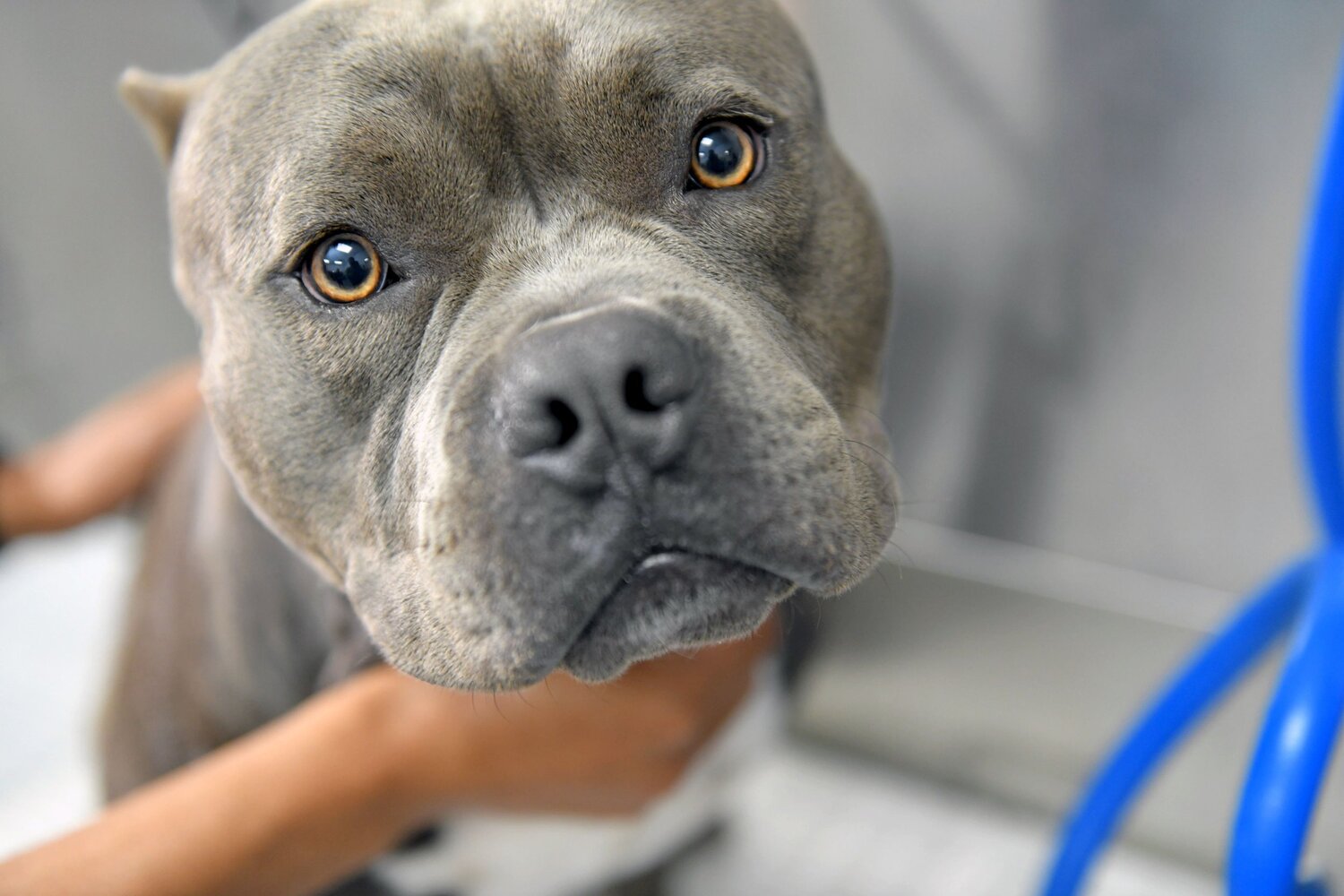Home>Health & Wellness>Common Health Issues>Heart Health>What Happens If I Miss A Month Of Heartworm Medicine For My Dog


Heart Health
What Happens If I Miss A Month Of Heartworm Medicine For My Dog
Published: February 7, 2024
Learn about the risks of missing a month of heartworm medicine for your dog and how it impacts their heart health. Keep your pet protected with proper heartworm prevention.
(Many of the links in this article redirect to a specific reviewed product. Your purchase of these products through affiliate links helps to generate commission for Pawsomeoldies.com, at no extra cost. Learn more)
Table of Contents
Introduction
Heartworm disease is a serious and potentially fatal condition that can affect dogs and, in rare cases, cats. It is caused by the parasitic worm Dirofilaria immitis, which is transmitted through the bite of an infected mosquito. Once inside a host, these worms can grow and multiply, leading to severe damage to the heart, lungs, and blood vessels. The consequences of heartworm disease can be devastating, often resulting in organ damage, respiratory issues, and even death if left untreated.
Preventing heartworm disease is crucial for the well-being of our beloved pets. Monthly heartworm preventive medications are the cornerstone of protection against this insidious disease. These medications work by killing the immature heartworms that may have been transmitted in the previous month, thus preventing them from maturing into adult worms that can cause harm.
However, despite our best intentions, there may be instances where a pet owner inadvertently misses a monthly dose of heartworm preventive medication for their furry companion. This can happen due to various reasons, such as forgetfulness, running out of medication, or other unforeseen circumstances.
Understanding the potential consequences of missing a month of heartworm medicine is essential for pet owners. It's important to be aware of the risks involved and the steps that can be taken to mitigate any potential harm to our pets. By staying informed and proactive, pet owners can ensure the continued health and well-being of their cherished companions.
In the following sections, we will delve into the intricacies of heartworm disease, the significance of heartworm prevention, the potential risks associated with missing a month of heartworm medicine, and the appropriate steps to take if such a situation arises. By gaining a comprehensive understanding of these aspects, pet owners can make informed decisions and take proactive measures to safeguard their pets against the perils of heartworm disease.
Understanding Heartworm Disease
Heartworm disease is a potentially life-threatening condition that primarily affects dogs but can also occur in cats and other mammals. It is caused by the parasitic worm Dirofilaria immitis, which is transmitted through the bite of infected mosquitoes. When an infected mosquito bites a host, it deposits microscopic heartworm larvae onto the skin, which then enter the host's bloodstream through the mosquito's bite wound.
Once inside the host, the heartworm larvae undergo several molts and eventually migrate to the heart and adjacent blood vessels, where they mature into adult worms. These adult worms can grow up to a foot in length and can live for several years within the host's body. As the worms multiply and grow, they can cause severe damage to the heart, lungs, and blood vessels, leading to a range of health issues.
In dogs, the presence of adult heartworms can lead to a condition known as heartworm disease, which can manifest in various ways. Common symptoms of heartworm disease in dogs include coughing, lethargy, exercise intolerance, difficulty breathing, and in severe cases, heart failure. The severity of the symptoms often depends on the number of worms present, the duration of the infection, and the individual pet's immune response.
In cats, heartworm disease presents differently and is often more challenging to diagnose. Cats are not the natural hosts for heartworms, and as a result, the presence of even a small number of worms can cause severe respiratory distress and other serious health issues. Additionally, the symptoms of heartworm disease in cats can be nonspecific and may mimic other feline respiratory conditions, making diagnosis and treatment more complex.
It's important to note that heartworm disease can be challenging and costly to treat, and the damage caused by the worms may be irreversible in some cases. Prevention is key to protecting our pets from the devastating effects of heartworm disease. Monthly heartworm preventive medications are highly effective in disrupting the heartworm life cycle and preventing the development of adult worms, thus safeguarding our pets from this potentially fatal disease.
By understanding the intricate nature of heartworm disease and the risks it poses to our beloved pets, pet owners can appreciate the critical importance of consistent heartworm prevention. Through proactive measures and regular veterinary care, we can work towards ensuring the well-being and longevity of our furry companions.
Importance of Heartworm Prevention
Heartworm prevention is a cornerstone of responsible pet ownership, playing a pivotal role in safeguarding the health and well-being of our beloved furry companions. The significance of heartworm prevention cannot be overstated, as it serves as a proactive measure to protect pets from the potentially devastating effects of heartworm disease.
By administering monthly heartworm preventive medications as prescribed by veterinarians, pet owners can effectively disrupt the heartworm life cycle and prevent the development of adult worms within their pets' bodies. These preventive medications work by targeting the immature heartworm larvae that may have been transmitted by mosquitoes in the previous month, thus halting their maturation into adult worms that can cause harm.
Consistent and timely administration of heartworm preventive medications is essential in ensuring continuous protection against heartworm disease. By adhering to the prescribed dosing schedule, pet owners can mitigate the risk of their pets becoming infected with heartworms and experiencing the associated health complications.
Furthermore, heartworm prevention is not only about protecting individual pets but also contributes to the broader community's efforts to control and minimize the prevalence of heartworm disease. By collectively engaging in preventive measures, pet owners can help reduce the overall burden of heartworm infection in animal populations, thereby contributing to the welfare of pets on a larger scale.
It's important to recognize that the consequences of heartworm disease can be severe and, in some cases, irreversible. The damage caused by adult heartworms to the heart, lungs, and blood vessels can lead to organ dysfunction, respiratory distress, and, in extreme cases, premature death. The financial and emotional toll of treating advanced heartworm disease can be substantial, underscoring the critical importance of prevention as the most effective and economical approach to safeguarding pets' health.
In addition to administering preventive medications, regular veterinary check-ups and heartworm testing are integral components of a comprehensive heartworm prevention strategy. Through proactive veterinary care, pet owners can stay informed about their pets' heartworm status and receive guidance on the most suitable preventive measures tailored to their pets' individual needs.
By prioritizing heartworm prevention, pet owners demonstrate their commitment to providing a safe and nurturing environment for their pets, free from the looming threat of heartworm disease. Through education, awareness, and proactive measures, we can collectively work towards minimizing the impact of heartworm disease on our cherished animal companions, fostering a community dedicated to the well-being of pets everywhere.
Potential Risks of Missing a Month of Heartworm Medicine
The potential risks of missing a monthly dose of heartworm preventive medication for our furry companions are significant and underscore the critical importance of consistent and timely administration. When a pet misses a scheduled dose of heartworm medicine, several potential risks may arise, posing threats to the pet's health and well-being. It's essential for pet owners to be aware of these risks and take proactive measures to mitigate any potential harm to their pets.
-
Vulnerability to Heartworm Infection: Missing a single dose of heartworm preventive medication can leave pets vulnerable to heartworm infection. If a pet is bitten by an infected mosquito during the period when the medication is not administered, it may result in the transmission of heartworm larvae, increasing the risk of infection.
-
Development of Resistant Strains: Inconsistent use of heartworm preventive medication can contribute to the development of resistant strains of heartworms. When the medication is not administered as prescribed, it creates an opportunity for heartworms to potentially develop resistance to the preventive agents, compromising the effectiveness of future treatments.
-
Potential Health Complications: The absence of timely preventive medication exposes pets to the risk of developing heartworm disease, leading to a range of health complications. If immature heartworm larvae transmitted by mosquitoes are not effectively eliminated, they can mature into adult worms, causing damage to the heart, lungs, and blood vessels, and resulting in organ dysfunction and respiratory distress.
-
Financial and Emotional Burden: Missing a month of heartworm medicine can lead to the financial and emotional burden of treating advanced heartworm disease. The costs associated with diagnosing and treating heartworm infection, including medications, veterinary care, and potential complications, can be substantial. Moreover, witnessing a pet endure the hardships of heartworm disease can take a toll on the pet owner's emotional well-being.
-
Impact on Overall Health: Heartworm disease can have a profound impact on a pet's overall health and quality of life. The presence of adult heartworms can lead to severe organ damage, respiratory issues, exercise intolerance, and in severe cases, heart failure. The long-term consequences of untreated heartworm disease can significantly diminish a pet's well-being and longevity.
Understanding these potential risks highlights the critical importance of adhering to the prescribed dosing schedule for heartworm preventive medication. By staying proactive and consistent in administering preventive measures, pet owners can effectively safeguard their pets from the perils of heartworm disease, ensuring their continued health and well-being.
Taking proactive measures to mitigate the potential risks of missing a month of heartworm medicine is essential for pet owners. By prioritizing regular administration of preventive medication and seeking guidance from veterinary professionals, pet owners can play a pivotal role in protecting their pets from the devastating effects of heartworm disease.
Steps to Take If You Miss a Month of Heartworm Medicine
If a pet owner realizes that a monthly dose of heartworm preventive medication has been missed, it is crucial to take prompt and proactive steps to mitigate any potential risks and safeguard the pet's health. The following measures can be taken if a month of heartworm medicine has been missed:
-
Consult with a Veterinarian: The first and most important step is to consult with a veterinarian as soon as possible. Veterinarians are highly knowledgeable about heartworm disease and can provide tailored guidance based on the specific circumstances. They can assess the pet's risk of heartworm infection, recommend appropriate testing, and devise a comprehensive plan to address any potential concerns.
-
Heartworm Testing: Upon consulting with a veterinarian, they may recommend conducting a heartworm test to assess the pet's current heartworm status. This test can help determine whether the missed dose has resulted in heartworm infection and provide valuable insights for the appropriate course of action.
-
Resuming Preventive Medication: Depending on the veterinarian's assessment, they may advise on the appropriate timing for resuming heartworm preventive medication. In some cases, immediate administration of the missed dose may be recommended, followed by subsequent doses as per the revised schedule. It is essential to adhere to the veterinarian's guidance regarding the timing and dosage of the preventive medication.
-
Monitoring for Symptoms: Pet owners should closely monitor their pets for any signs or symptoms that may indicate potential health issues, such as coughing, lethargy, or exercise intolerance. If any concerning symptoms arise, it is crucial to promptly seek veterinary attention to address the pet's well-being.
-
Preventive Measures: In addition to resuming preventive medication, veterinarians may recommend additional preventive measures to minimize the risk of heartworm infection. This may include environmental modifications to reduce mosquito exposure, such as using mosquito repellents and minimizing outdoor activities during peak mosquito hours.
-
Follow-Up Veterinary Care: Regular follow-up appointments with the veterinarian are essential to monitor the pet's response to the resumed preventive medication and ensure ongoing protection against heartworm disease. These appointments provide an opportunity for the veterinarian to assess the pet's health, conduct necessary tests, and make any adjustments to the preventive strategy as needed.
By taking these proactive steps and seeking guidance from veterinary professionals, pet owners can effectively address the situation if a month of heartworm medicine has been missed. Timely intervention and adherence to the veterinarian's recommendations are crucial in mitigating any potential risks and ensuring the continued health and well-being of our cherished pets.
Conclusion
In conclusion, the well-being of our beloved pets is intricately linked to the proactive measures we take to protect them from the perils of heartworm disease. Understanding the potential risks associated with missing a monthly dose of heartworm preventive medication underscores the critical importance of consistent and timely administration. The potential vulnerabilities to heartworm infection, development of resistant strains, and the potential health complications highlight the imperative of adhering to the prescribed dosing schedule.
In the event of a missed dose, swift action is paramount. Consulting with a veterinarian, conducting heartworm testing, and resuming preventive medication under veterinary guidance are pivotal steps in mitigating any potential risks and safeguarding the pet's health. Additionally, close monitoring for symptoms and implementing additional preventive measures as recommended by veterinarians further contribute to the comprehensive approach in addressing the situation.
The significance of heartworm prevention cannot be overstated, as it not only protects individual pets but also contributes to the broader community's efforts to control and minimize the prevalence of heartworm disease. By prioritizing regular administration of preventive medication and seeking guidance from veterinary professionals, pet owners play a pivotal role in safeguarding their pets from the devastating effects of heartworm disease.
Furthermore, the financial and emotional burden of treating advanced heartworm disease serves as a compelling reminder of the substantial impact that prevention can have on the well-being of our pets. By investing in consistent heartworm prevention, pet owners demonstrate their commitment to providing a safe and nurturing environment for their pets, free from the looming threat of heartworm disease.
Through education, awareness, and proactive measures, we can collectively work towards minimizing the impact of heartworm disease on our cherished animal companions, fostering a community dedicated to the well-being of pets everywhere. By staying informed, proactive, and compassionate, pet owners can ensure the continued health and longevity of their furry companions, enriching their lives with love, care, and protection against the perils of heartworm disease.














